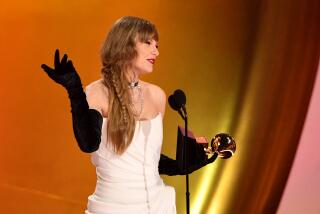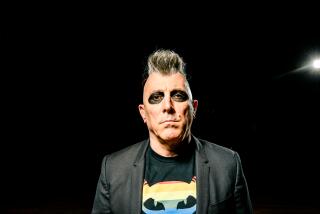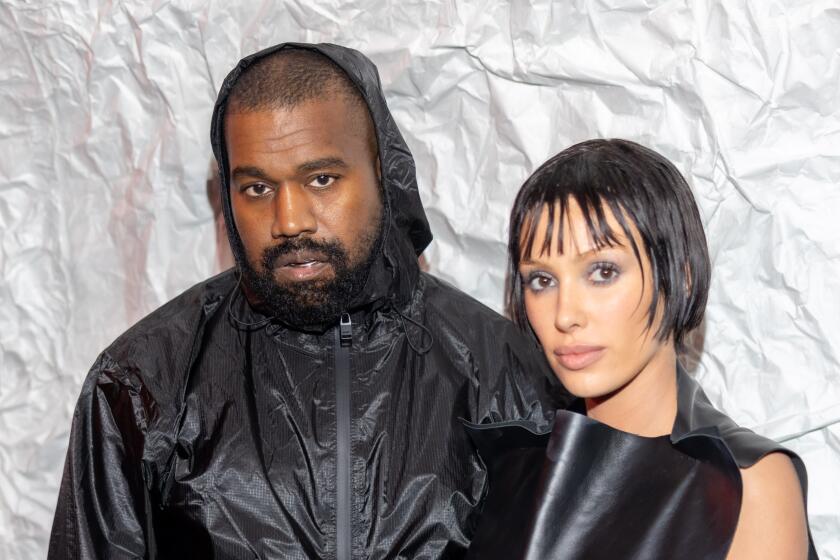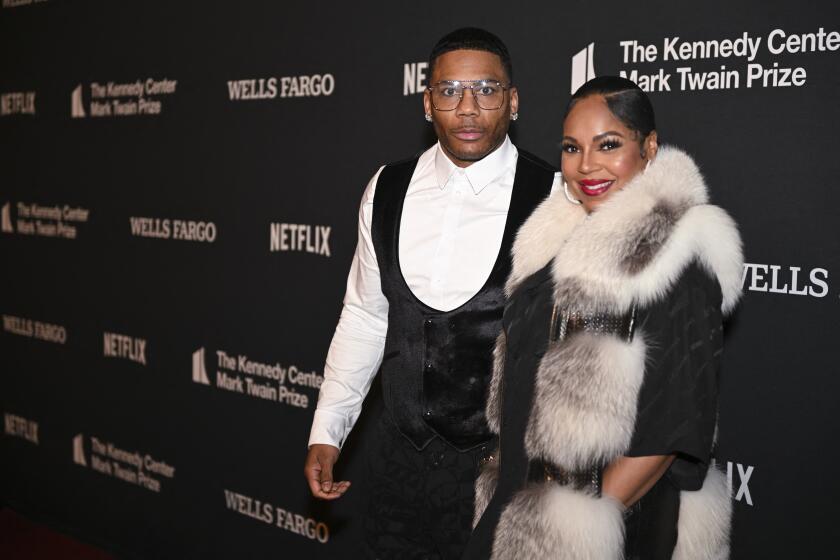Trap karaoke is about more than hip-hop and more than karaoke
Stepping to the front of the stage before a large crowd, the young woman introduced herself simply as “Boo.” Dressed in a colorful bomber jacket, jeans and glasses, Boo is short with a soft, high-pitched voice.
When the music drops, her demeanor changes.
Performing 2003’s “Shake That Monkey,” by Too Short, Boo paces the stage rapping the raunchy lyrics and dancing with the swagger of a seasoned entertainer. And the audience eats it up.
When her performance ends, the crowd erupts in cheers. “I didn’t mean to be on stage like that,” she says, reverting back into her everyday persona.
Standing shoulder to shoulder, hundreds of people packed into Union Nightclub this month for Trap Karaoke, an event that blends karaoke with a sing-along concert experience. But instead of Bon Jovi, Journey, Backstreet Boys and other classic karaoke songs, the event features exclusively trap, hip-hop and R&B music — think Kanye West, Travis Porter and Migos.
“Maybe 20% of the event is karaoke… but you have hundreds of people who go home and have had the time of their lives,” said Jason Mowatt, 31, the event founder and director. “I think karaoke is an excuse for people to let their guard down and come out and have fun.”
The origins of Trap Karaoke started as a lark. Mowatt was texting a friend obsessed with the rapper Future. “He said I’ll talk to you later, I’m going out to karaoke with my coworkers. And I was like. ‘Man wouldn’t it be crazy if we could do karaoke to trap music,’” Mowatt said.
Mowatt, who has a background in social media marketing and was an investor/organizer of Washington, D.C.’s hip-hop and electronic music festival, Trillectro, quickly arranged the first trap karaoke on New York’s Lower East Side in September 2015. From there, the event evolved into a nationwide tour.
In Los Angeles, duo Brigidann Cooper and Omar Alcibar, dressed in complimentary red and black outfits, took the stage to perform the 1990s 2Pac hit “California Love.”
Cooper was the main performer, with Alcibar acting as hype man. When she forgot some of the words, the audience jumped in — the large screen projecting lyrics to the audience helped.
“I’ve done regular karaoke, never with this kind of crowd,” Cooper, 35, says later, hanging out by the bar. “It’s like a performance; you have to engage the crowd and be entertaining.”
“That’s part of the allure of this event itself. I’ve gone to various karaoke bars, even recently in New Orleans, and even there the hip-hop selection was so low,” Alcibar, 36, says. “Maybe people don’t have time to transcribe Lil Wayne.”
Hip-hop themed karaoke is not a new concept. The Rhyme Along, for instance, which started in 2009, is a monthly event in Los Angeles that caters to the hip-hop crowd, but it’s rare to find a karaoke bar or lounge that has an extensive hip-hop catalog.
There are theories as to why trap karaoke is in relatively short supply. It has to do with the influx of karaoke from Japan into the U.S. in the late 1980s and early 1990s, according to Rob Drew, author of “Karaoke Nights: An Ethnographic Rhapsody.”
“The whole song repertoire was 800 songs in 1990, when karaoke first appeared, then it expanded to 1,400 songs by 1992, which is when I started studying it. It was a very selective menu,” Drew said. “Also at that time, even though hip-hop was popular, it was kind of under the radar for the mainstream music industry.”
Drew also spoke about the culture of karaoke, and the differences between singing versus performing hip-hop in a public setting.
“Your generic American karaoke bar, it tends to be a form for an exhibition of singing skill — being able to hit the high notes and the low notes and having perfect pitch,” Drew said. “I think that’s because hip-hop culture is so organically participatory that it never seemed like it needed karaoke.”
But the event, which features exuberant amateur performances, has many similarities to traditional karaoke. One main difference lies in its ability to bring black millennials together to let loose, share in a connected experience and feel a sense of community.
This is why Mowatt wants to expand Trap Karaoke to smaller and lesser-known cities. “From the beginning, my stance on this was we’re not party promoters, we’re community organizers,” Mowatt said.
Here in Los Angeles, the event was held on the same night as Donald Trump’s inauguration.
“So we all saw what happened early this morning in D.C.,” host Lowkey says, drawing thunderous boos. “But it don’t represent our America. Donald Trump doesn’t represent us; he never will represent us.”
From there, the DJ launched into anti-Trump song “FDT” by Compton-rapper YG.
The night concluded with words of encouragement from the host, who repeated something he’d said earlier about Boo’s performance.
“Attack life just like Boo attacked the stage tonight.”
More to Read
The biggest entertainment stories
Get our big stories about Hollywood, film, television, music, arts, culture and more right in your inbox as soon as they publish.
You may occasionally receive promotional content from the Los Angeles Times.







